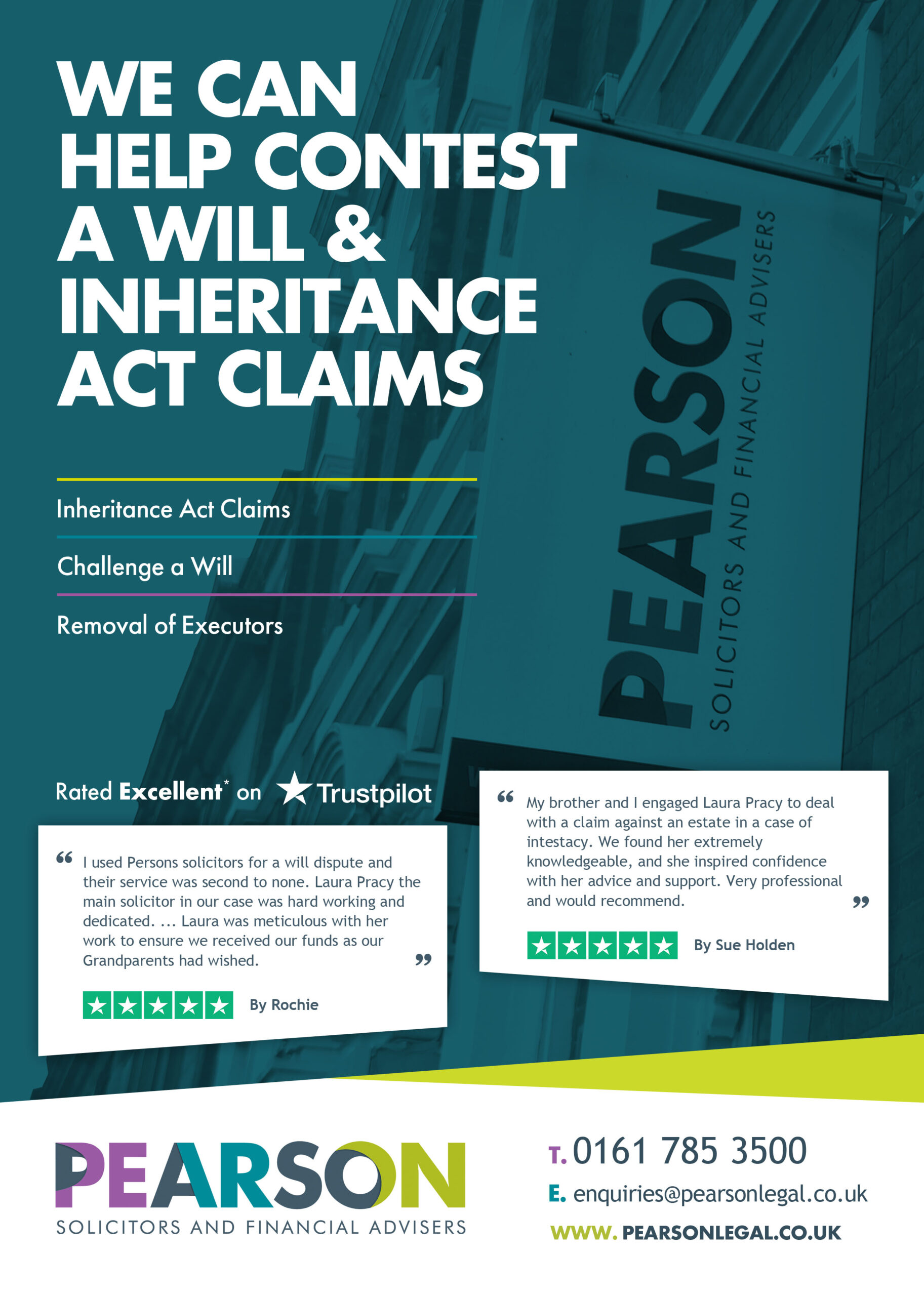

Pearson Solicitors and Financial Advisers have a wealth of experience when it comes to contesting Wills and provide practical advice and support to their clients. Laura Pracy, Head of Pearson Solicitors Inheritance & Will Disputes Department talks here about the main reasons why the validity of a Will may be contested.

In England and Wales, a person making a Will (the testator) has complete freedom of testamentary disposition. This means we can leave our assets to whoever we wish by making a Will. There are however several legal grounds which enable the validity of the Will to be contested, which are detailed below.
Lack of valid execution
For a Will to be valid it must be properly executed. The Will must be in writing and signed by the person making the Will (the testator) or by some other person in the testator’s presence and, at the testator’s direction. It must be witnessed by two or more witnesses who are present at the same time and witness the testator signing of the Will.
Lack of testamentary capacity
The testator must be capable of making a valid Will at the time it is made. This means they must be 18 years or over, be of sound mind, memory and understanding and not be suffering any mental illness. They need to understand the importance of making a Will and the true value of their Estate.
Lack of knowledge and approval
The Court must be satisfied that the testator knew and approved the contents of the Will when it was executed.
Lack of testamentary intention
A document purporting to be a Will is only a valid Will if it was intended by the maker to operate as a Will. The Court must be satisfied that the testator knew, understood and approved the contents of their Will.
Undue influence
The testator must make the Will to reflect their own wishes and should not be coerced or unduly influenced by anyone else such as family members, carers or a professional who could benefit from the Will. If a testator is coerced or forced into making a Will, the Court may set aside the Will either fully, or in part, meaning the Will is invalid in its entirety, or in part.
Fraudulent and Forged Wills
Fraud or forgery, if proven, invalidates a Will. Examples of this include a person pretending to be the testator and then forging their signature. Destroying a Will without the testator’s permission or making false claims about another beneficiary so that they are cut from the Will.
In addition to contesting wills, we also represent our clients on a range of other issues including claims under the Inheritance (Provision for Family and Dependants) Act 1975, Estate administration and executor removal disputes, entering and challenging caveats.
Why Choose Pearson?
Pearson Solicitors and Financial Advisers can advise you on any claims you may have and as these can be time sensitive, it is important to seek legal advice as soon as possible. Contact our Inheritance and Will Disputes Department on 0161 785 3500 for your free initial no obligation conversation.









